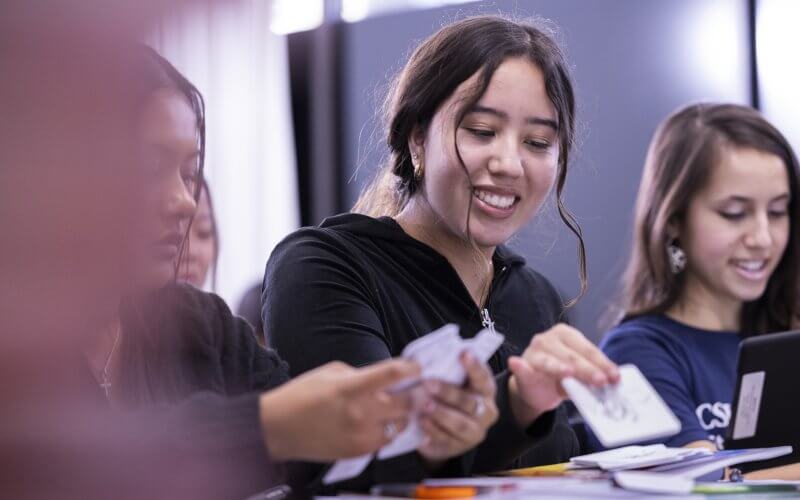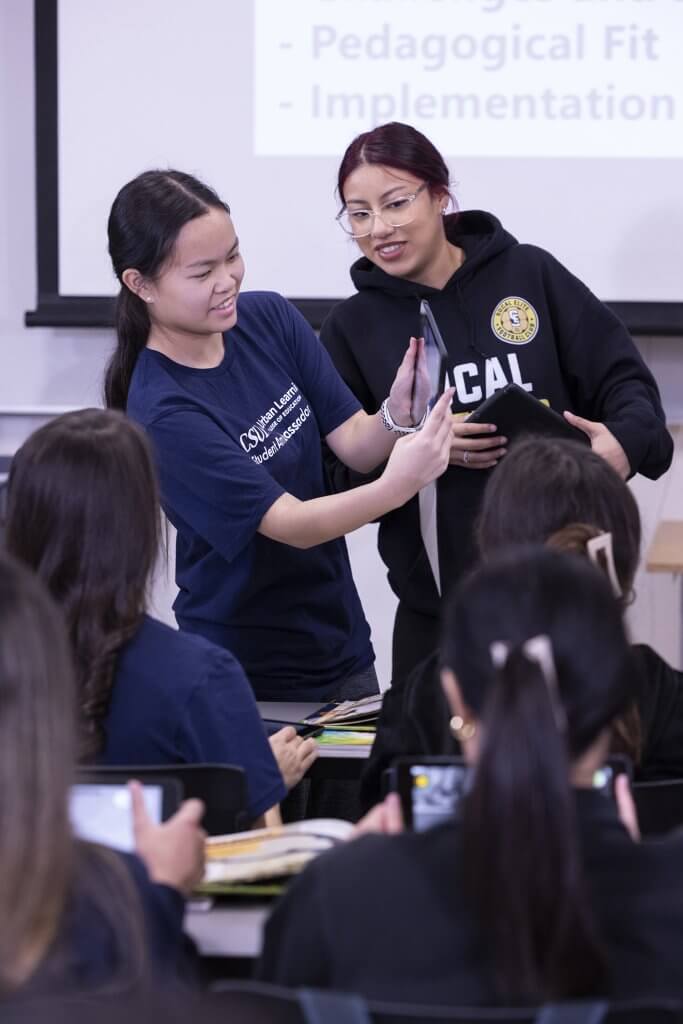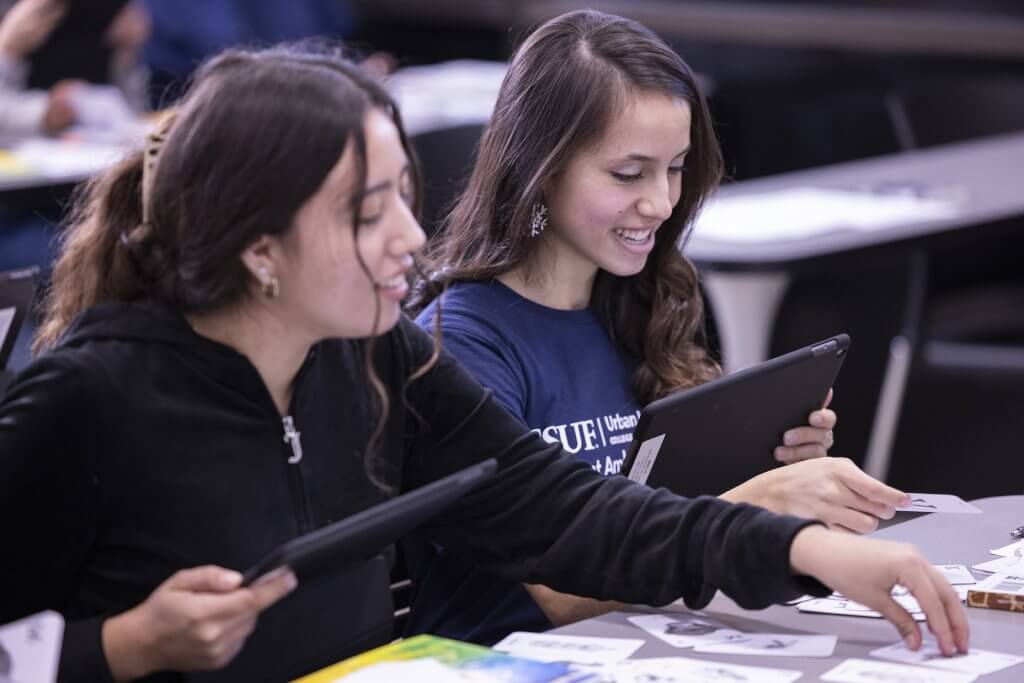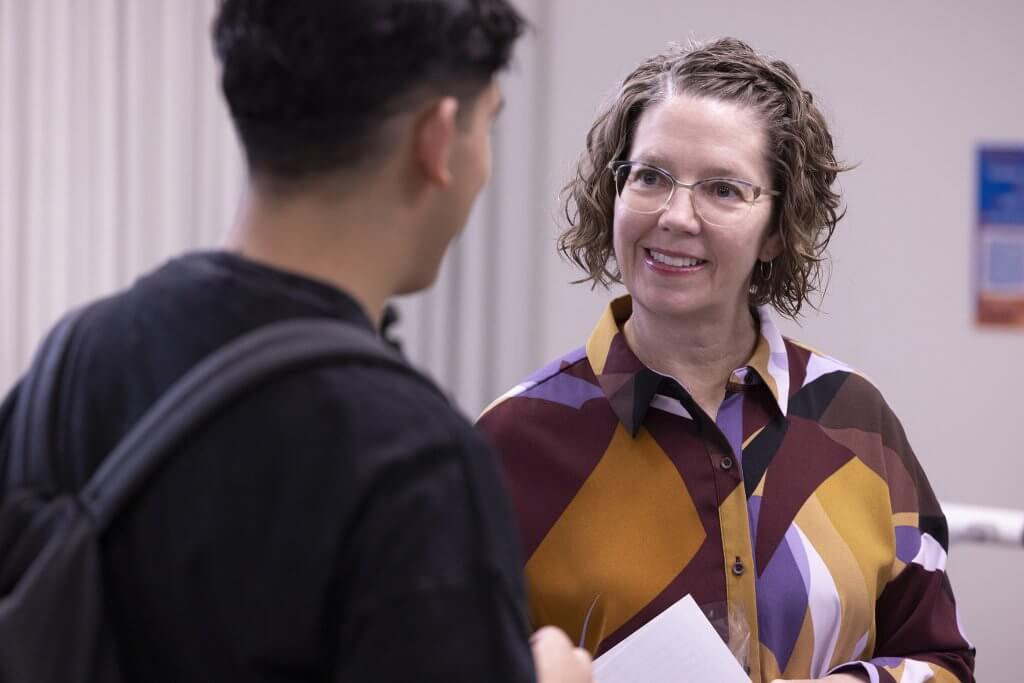
Urban learning major Sage Giambone’s parents are Orange County public school teachers who inspired her to follow in their footsteps and enter the teaching profession.
Nikki Wu’s elementary school teachers, who were patient and made her feel valued, sparked her career choice to become an early childhood educator.
To prepare for their future teaching careers, the Cal State Fullerton students enrolled in the university’s new urban learning bachelor’s degree program, which started in the fall. The College of Education’s first undergraduate degree program has 28 first-time, first-year students.
“I chose CSUF’s urban learning program because it gives us a better understanding of what it means to be teachers who treat all of their students with equality,” said Giambone, who aspires to teach elementary-age children or middle school English like her mother, a CSUF alum.

Wu decided to enroll at CSUF because of the program’s focus on social justice and equity in schools and communities.
“I hope this program helps me become a teacher that supports students not just academically but also how to foster an inclusive classroom environment,” said Wu, the first in her family to attend college.
The degree program prepares future educators and community leaders who are passionate about creating inclusive and empowering learning environments for all students in urban schools and communities, said Calli Lewis Chiu, associate professor of special education and director of the urban learning program.
Lewis Chiu said that the urban learning major is rooted in social justice and equips students with critical thinking skills to analyze systemic inequities in education and the tools to challenge them.
“We’re developing future educators who can advocate for marginalized communities, dismantle barriers to learning and create inclusive and equitable learning environments where all students thrive,” she said.
The program offers interdisciplinary coursework, including courses such as Structural and Institutional Bias in Schools and Literacy Education for Social Change, which give students a real-world understanding of the challenges and promises of education. The course Translanguaging Across Identities in Schools focuses on practical strategies to create supportive learning environments.
Other classes in queer studies and institutional bias in schools offer students a strong foundation in understanding how systemic inequities shape education, Lewis Chiu said.
The program is a cohort model — meaning students take courses with the same group of peers — to facilitate bonds and a sense of belonging and community. Students also participate in cocurricular activities such as research and study abroad opportunities.

Giambone and Wu are part of the urban learning program’s Student Ambassador Team, which allows students to develop leadership skills and build connections with program peers and faculty. To further plan for the teaching workforce, they are also involved in Titan Future Teachers, which offers community building and academic and professional development.
What attracted Giambone and Wu to the urban learning program is the pathway and preparation it provides to obtain a teaching credential and land a teaching position.
Following earning their bachelor’s degree, students enter the university’s one-year credential program prepared to implement innovative teaching strategies and contribute to positive social change.

The future educators credit Lewis Chiu and Melissa Baez, urban learning academic adviser, for guiding them through a successful first semester. Baez regularly checks in with students to ensure their well-being and that they stay on track with their educational goals.
“Dr. Lewis Chiu provides us with guidance and important tools that we can use to incorporate into our everyday teaching,” Giambone said. “Melissa has given me helpful information and resources to ensure my academic success.”
Lewis Chiu added that the new program is helping address California’s growing teacher shortage and need for educators who support diverse students.
“Ultimately, the goal of this major is to empower students to become agents of change and contribute to a more equitable future for students,” she said.